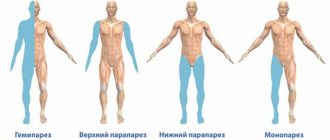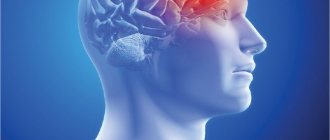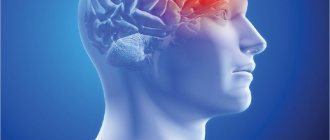The famous German psychiatrist very accurately described patients with personality disorders.
He said that these are people who, due to their mental characteristics, suffer themselves and make others suffer. The first manifestations of the disease (formerly called psychopathy) appear at a fairly early age, and symptoms persist throughout life. At the same time, they are not perceived by the patient himself as pathological, much less requiring professional help.
The disturbances observed in psychopathy hinder full social adaptation, and therefore require appropriate diagnosis and timely therapy. The Kordia clinic uses modern treatment protocols that make it possible to achieve remission and behavior correction in the shortest possible time.
GET A FREE CONSULTATION
COST OF TREATMENT FOR MENTAL DISEASES
The duration of treatment in a hospital is from 14 to 90 days, depending on the severity of the disease.
TREATMENT IN A HOSPITAL.
AMBULATORY TREATMENT
TREATMENT IN A HOSPITAL
Inpatient treatment – accommodation options
| Accommodation in a triple room | 10,000 rub./day |
| Double room | RUB 13,800/day |
| Single room of increased comfort | 16,000 rub./day |
| Treatment in a single VIP ward | 25,000 rub./day |
AMBULATORY TREATMENT
Ambulatory treatment
| psychiatrist | FOR FREE |
| Consultation with a psychiatrist (first appointment) – free of charge during hospitalization | 3,000 rub. |
| Full psychodiagnostics (all tests and procedures) | from 5,000 rub. |
| Appointment with the head physician of the clinic | 4,500 rub. |
| Consultation with a psychiatrist at home | from 4,000 rub. |
FREE CONSULTATION
Causes
It is believed that this is a polyetiological disease. Genetic predisposition plays a major role. This theory is supported by clinical studies conducted in the 1970s and 1980s. When studying the anamnesis of patients with a similar mental disorder, it was found that the incidence of symptoms of the disease is 5 times higher in children whose parents suffered from a similar pathology.
Considerable importance is also attached to exogenous organic lesions of the brain during intrauterine development, during childbirth or infancy. These injuries are not severe enough to cause significant symptoms of neurological disease, but are sufficient to impair mental functioning.
Disability in schizophrenia
Disability in schizophrenia is irreversible or persistent pathological changes in the body or psyche of the patient, reducing his socialization, ability to work, movement and ability to self-care.
Disability in schizophrenia is formalized when
- the course of the disease is more than 3 years;
- frequent and prolonged psychoses with hospitalization;
- pronounced negative symptoms: decreased energy potential, lack of commitment to work, social isolation;
- reduction of criticism during remission;
- persistent asthenic and affective disorders outside of psychosis;
- pronounced personality defect: lethargy, unemotionality, loss of initiative, coldness, irritability;
- change in behavior in the form of mannerism, whimsicality, foolishness, aggression and self-aggression, lack of harmony with people;
- prolonged catatonia or psychomotor agitation;
- loss of previous abilities and skills for self-care.
40% of patients with schizophrenia have a mental disability. Usually a 2nd non-working group is assigned. In milder cases of persistent changes in the patient’s psyche, disability group 3 is assigned.
Disability group 1 can also be assigned. When the disease proceeds with virtually no visible remissions, apatoabulic syndrome is expressed, when the patient practically does not leave the house and cannot provide himself with food, basic hygiene and the preservation of his health, or, due to continuous hallucinatory-delusional and catatonic states, the connection with the objective is completely lost the world and your personality.
Personality disorder: symptoms and signs
Manifestations of the disease affect all areas of the personality: primarily emotional and volitional, in addition, thinking, style of behavior and communication in society. There is no ability to flexibly adjust and adapt to changes in everyday life. Such people are unable to realistically perceive themselves and others and establish friendly relations with them. But these are only general symptoms; more specific clinical manifestations depend on the form of the disease.
Paranoid (paranoid) form
Characterized by constant suspicion, mistrust, and a tendency to shift responsibility for actions and decisions made. People with this type of disease often feel constantly offended, relegated to the background, and betrayed.
They are full of prejudices, but at the same time they are 100% convinced of their own objectivity and rationality. From the outside, their behavior seems devoid of emotion and lacks a sense of humor. All aspects related to power are highly valued, the rest is only contemptible.
Important! Sometimes this type of illness is a harbinger of the manifestation of schizophrenia, therefore, special attention is paid to the diagnostic examination and treatment of such patients at the Cordia clinic.
Schizoid type
The main feature of people with this type of illness is withdrawal and inability to establish long-term and emotional interpersonal relationships. They prefer work that is not associated with close communication or social interaction, while they are little concerned about the prestige or financial component of the profession, and easily tolerate monotonous activities. The ability to experience pleasure and experience both physical and emotional pain is often reduced. Paradoxically, coldness in communication is often combined with a reverent attitude towards animals and admiration for some inanimate objects (architectural structures, objects of art).
Characterized by an obsession with a healthy lifestyle (passion for specific and extraordinary diets, sports). But at the same time, the risk of developing alcoholism or drug addiction in attempts to have fun is quite high. Patients are indifferent to the opinions of others, incapable of empathy, there is no impulsiveness - only cold calculation.
Dissocial form of pathology
Typically, the desire to obtain pleasure and enjoyment, while avoiding any work and stress.
From an early age, they are characterized by deceit, running away from home, a specific, asocial circle of friends, theft, fights, drugs, and alcohol. Patients constantly manipulate others, resorting to blackmail, threats of suicide, and complaints of poor health.
They are not at all concerned about the consequences of their actions; their explanations look naive and infantile. Thinking disorders are usually absent; rather, on the contrary, the intellect is well developed.
Emotionally unstable type
- Impulsive (aggressive) personality disorder. Characterized by episodes of loss of self-control with attacks on others, damage to furniture, breaking dishes, etc. The level of aggression clearly does not correspond to the situation. The attack begins abruptly, ends very quickly, after which the person regrets what happened.
- Borderline (mixed) personality disorder. Symptoms combine manifestations of neurosis, psychosis, and schizophrenia. Typically there is a violation of the perception of one’s own identity, which provokes demonstrative attempts at suicide, a feverish search for communication with a demand for devotion and support.
Hysterical variant of the course of the disease
The main feature is attracting attention to oneself through defiant behavior, exaggerated display of emotions, manipulation (tears, reproaches, attacks of anger and irritability). Sexual attractiveness is emphasized separately, but impotence is typical for men with a similar illness, and anorgasmia is typical for women. They note self-centeredness, the desire to satisfy their own needs, and neglect of the needs of others.
Anankastny (obsessive-compulsive) form
The person is focused on correctness, ordering, regulation, neatness. He lacks a sense of humor, spontaneity in actions, initiative, and is indecisive. In interpersonal relationships, incapable of compromise, intolerant.
Anxious subtype
Patients have extremely low self-esteem, but they are constantly in search of new social contacts. However, they always need guarantees of a positive attitude and lack of criticism. Any deviation from the “ideal” they represent causes fear and is perceived as betrayal. Behavior is characterized by stiffness, unnaturalness, and excessive modesty.
Other types of personality disorders
- Dependent. The desire to find a person who could solve the patient’s problems and help him get out of difficult life situations is clearly expressed.
- Narcissistic, characterized by an exaggeration of one's own importance. Patients cannot tolerate criticism, responding to it with open aggression.
- Passive-aggressive, characterized by constant internal resistance to leadership and loved ones. Feeling internal tension and rage, patients are constantly irritated and dissatisfied, as they cannot fight back or express their dissatisfaction or desires.
- Association disorder. Against the background of acceleration of associative processes, a rapid change of thoughts of the patient and inhibition of the speech apparatus are observed. This leads to difficulties communicating with other people. It is difficult for a person to concentrate on one thing, it is difficult to express his own opinion on this or that issue, in a conversation he constantly jumps from topic to topic.
Does your relative have a mental disorder?
Refuses hospitalization? Are you afraid that he will harm himself and others? Call or request a free consultation.
URGENT CONSULTATION
The doctor will arrive within 1 hour . We'll take you to the hospital ourselves. Emergency hospitalization - around the clock!
Principles of Personality Disorder Treatment
Usually they practice an integrated approach: a combination of psychotherapy and medication. The exact tactics to cure the disease largely depend on the specific variant of the disease. Typically, preference is given to individual or group sessions with a psychologist. At the same time, our specialists have sufficient qualifications and many years of experience to establish close, friendly contact with the patient. In some cases, family therapy provides good results.
Drug treatment
The role of drug use is controversial. For example, with the paranoid subtype of the disease, any attempts to prescribe medications are viewed with great suspicion and sabotage the prescribed treatment. Therefore, medications are used when there are pronounced signs of a personality disorder.
Prescribed:
- antidepressants;
- neuroleptics (outpatient or inpatient, for borderline form);
- sedatives;
- anxiolytics.
Based on their own practice, medical doctors are convinced that personality disorders are treatable in most cases. Our doctors know very well what to do to improve the quality of life not only of the patient, but also of his loved ones. Call us by phone +7 (495) 268-09-02!
Diagnosis of BPD
Diagnostics is the first and main stage before prescribing a course of therapy. The specialist takes the following steps step by step:
- a detailed survey of relatives, work colleagues and friends, which helps to establish the exact time when signs of borderline personality disorder first appeared;
- studying family history - it is important to make sure that close relatives do not have similar diseases;
- collecting maximum information about the patient’s life;
- conversation with the patient and observation of him from the outside in order to identify characteristic symptoms of mental pathology;
- conducting psychological testing to obtain a complete picture of the internal state of a mentally ill person.










